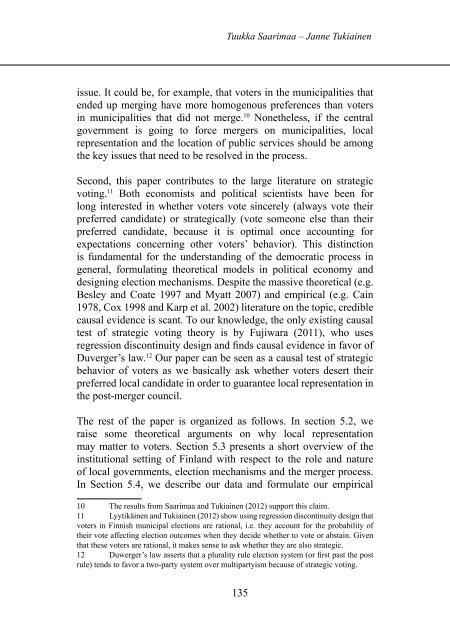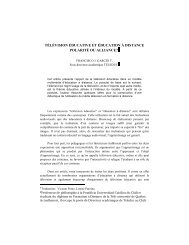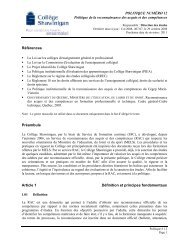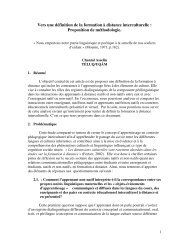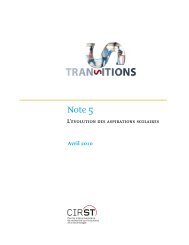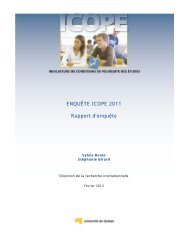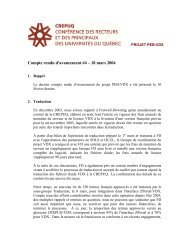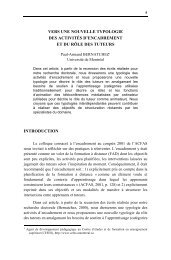61 Rethinking local government: Essays on municipal reform - VATT
61 Rethinking local government: Essays on municipal reform - VATT
61 Rethinking local government: Essays on municipal reform - VATT
Create successful ePaper yourself
Turn your PDF publications into a flip-book with our unique Google optimized e-Paper software.
Tuukka Saarimaa – Janne Tukiainenissue. It could be, for example, that voters in the <strong>municipal</strong>ities thatended up merging have more homogenous preferences than votersin <strong>municipal</strong>ities that did not merge. 10 N<strong>on</strong>etheless, if the central<str<strong>on</strong>g>government</str<strong>on</strong>g> is going to force mergers <strong>on</strong> <strong>municipal</strong>ities, <str<strong>on</strong>g>local</str<strong>on</strong>g>representati<strong>on</strong> and the locati<strong>on</strong> of public services should be am<strong>on</strong>gthe key issues that need to be resolved in the process.Sec<strong>on</strong>d, this paper c<strong>on</strong>tributes to the large literature <strong>on</strong> strategicvoting. 11 Both ec<strong>on</strong>omists and political scientists have been forl<strong>on</strong>g interested in whether voters vote sincerely (always vote theirpreferred candidate) or strategically (vote some<strong>on</strong>e else than theirpreferred candidate, because it is optimal <strong>on</strong>ce accounting forexpectati<strong>on</strong>s c<strong>on</strong>cerning other voters’ behavior). This distincti<strong>on</strong>is fundamental for the understanding of the democratic process ingeneral, formulating theoretical models in political ec<strong>on</strong>omy anddesigning electi<strong>on</strong> mechanisms. Despite the massive theoretical (e.g.Besley and Coate 1997 and Myatt 2007) and empirical (e.g. Cain1978, Cox 1998 and Karp et al. 2002) literature <strong>on</strong> the topic, crediblecausal evidence is scant. To our knowledge, the <strong>on</strong>ly existing causaltest of strategic voting theory is by Fujiwara (2011), who usesregressi<strong>on</strong> disc<strong>on</strong>tinuity design and finds causal evidence in favor ofDuverger’s law. 12 Our paper can be seen as a causal test of strategicbehavior of voters as we basically ask whether voters desert theirpreferred <str<strong>on</strong>g>local</str<strong>on</strong>g> candidate in order to guarantee <str<strong>on</strong>g>local</str<strong>on</strong>g> representati<strong>on</strong> inthe post-merger council.The rest of the paper is organized as follows. In secti<strong>on</strong> 5.2, weraise some theoretical arguments <strong>on</strong> why <str<strong>on</strong>g>local</str<strong>on</strong>g> representati<strong>on</strong>may matter to voters. Secti<strong>on</strong> 5.3 presents a short overview of theinstituti<strong>on</strong>al setting of Finland with respect to the role and natureof <str<strong>on</strong>g>local</str<strong>on</strong>g> <str<strong>on</strong>g>government</str<strong>on</strong>g>s, electi<strong>on</strong> mechanisms and the merger process.In Secti<strong>on</strong> 5.4, we describe our data and formulate our empirical10 The results from Saarimaa and Tukiainen (2012) support this claim.11 Lyytikäinen and Tukiainen (2012) show using regressi<strong>on</strong> disc<strong>on</strong>tinuity design thatvoters in Finnish <strong>municipal</strong> electi<strong>on</strong>s are rati<strong>on</strong>al, i.e. they account for the probability oftheir vote affecting electi<strong>on</strong> outcomes when they decide whether to vote or abstain. Giventhat these voters are rati<strong>on</strong>al, it makes sense to ask whether they are also strategic.12 Duwerger’s law asserts that a plurality rule electi<strong>on</strong> system (or first past the postrule) tends to favor a two-party system over multipartyism because of strategic voting.135


